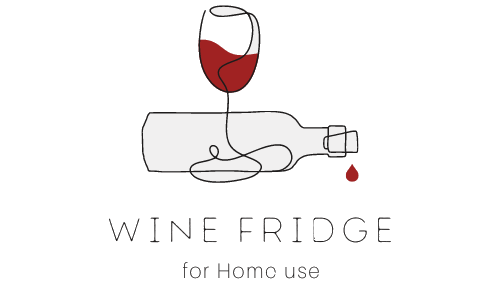Are you wondering whether wine fridges are noisy or not? In this article, we will explore this topic and provide you with all the information you need to know. We’ll discuss the various factors that can contribute to noise levels in wine fridges, and we’ll also provide some tips on how to minimize any potential noise. So, if you’re considering getting a wine fridge for your home, keep reading to find out if noise will be a factor you need to consider!
1. Understanding wine fridges
1.1 What are wine fridges?
If you are a wine enthusiast, chances are you have considered investing in a wine fridge to store and preserve your collection. Wine fridges, also known as wine coolers, are specially designed appliances that provide optimal conditions for wine storage. They are equipped with temperature controls and insulation to create a stable environment for your bottles.
1.2 Different types of wine fridges
There are two main types of wine fridges: thermoelectric and compressor-based. Thermoelectric wine fridges use a solid-state heating and cooling mechanism, which makes them quieter compared to their compressor-based counterparts. On the other hand, compressor-based wine fridges utilize a traditional compressor system, similar to what you would find in a refrigerator, which can generate more noise.
1.3 Purpose and benefits of wine fridges
The primary purpose of a wine fridge is to create ideal storage conditions for wine. Wine is a delicate beverage that can be easily affected by temperature fluctuations, light exposure, and vibrations. A wine fridge helps maintain a consistent temperature, humidity, and darkness, which are crucial for preserving the quality and taste of your wine. By investing in a wine fridge, you can ensure that your collection ages gracefully and remains in its best possible condition.
2. Noise levels in wine fridges
2.1 Factors affecting noise levels
While wine fridges are designed to provide the best storage conditions, they can produce varying levels of noise. Several factors can contribute to noise levels in wine fridges, including the type of cooling system, the quality of insulation, and the overall build quality of the appliance. It is essential to consider these factors when evaluating the potential noise of a wine fridge.
2.2 Common noise sources in wine fridges
There are a few common noise sources in wine fridges that can contribute to the overall sound level. The most common source is the cooling fan, which is responsible for circulating air within the unit. Additionally, the compressor in a compressor-based wine fridge can generate noise as it turns on and off to regulate the temperature. Lastly, vibrations from the internal components or the wine bottles themselves can also contribute to the overall noise.
2.3 Understanding decibel levels
Decibel (dB) is a unit used to measure sound intensity. To better understand noise levels in wine fridges, it is crucial to have a basic understanding of decibel levels. A whisper typically measures around 30 dB, while normal conversation ranges between 60 and 70 dB. As a reference, a refrigerator’s noise level is typically around 40 dB.
3. Evaluating noise in wine fridges
3.1 Importance of noise evaluation
When choosing a wine fridge, considering the noise levels is important, especially if you plan to place it in a living area or bedroom. Excessive noise can be disruptive and affect your overall experience. Evaluating noise levels allows you to make an informed decision and choose a wine fridge that meets your specific needs and preferences.
3.2 Measurement methods for noise
Measuring the noise produced by a wine fridge can be challenging, as it requires specialized equipment. One common method is to use a sound level meter, which measures the decibel level of the appliance. Many manufacturers provide decibel ratings for their wine fridges, making it easier to compare the noise levels between different models.
3.3 Acceptable noise levels for different environments
Acceptable noise levels can vary depending on the environment in which the wine fridge is placed. In general, a noise level below 50 dB is considered quiet and suitable for most living areas. However, if you plan to place the wine fridge in a bedroom or library, you may prefer a model with a noise level below 40 dB to ensure a peaceful and undisturbed ambiance.
4. Addressing noise issues
4.1 Noise reduction technologies and techniques
If you find that your wine fridge is producing more noise than desired, there are several techniques and technologies available to help reduce the noise. One commonly used method is to add additional insulation to the appliance. Increasing the thickness of the insulation can help absorb sound waves and reduce the overall noise level. Additionally, placing rubber or foam pads under the unit can help minimize vibrations and prevent them from transferring to the surrounding area.
4.2 Placement considerations for noise reduction
The placement of your wine fridge can also play a significant role in noise reduction. Ideally, you should place the unit on a solid and level surface to prevent vibrations. Avoid placing it directly against a wall or any other objects that could amplify the noise. Providing proper ventilation around the wine fridge is also important to prevent overheating and potential noise issues.
4.3 Maintaining and troubleshooting noise issues
Regular maintenance is essential to ensure optimal performance and minimize noise levels in your wine fridge. Cleaning the cooling fan, condenser coils, and compressor regularly can prevent dust buildup and ensure proper airflow, reducing the workload on the appliance and minimizing noise. If you experience persistent noise issues, it is recommended to consult the manufacturer’s troubleshooting guide or seek assistance from a professional technician.
5. Comparing noise levels in different wine fridges
5.1 Noise comparison between thermoelectric and compressor-based wine fridges
When comparing noise levels between thermoelectric and compressor-based wine fridges, thermoelectric models tend to be quieter. The absence of a traditional compressor system in thermoelectric wine fridges reduces the noise produced during operation. However, it’s important to note that noise levels can still vary between different models within each category, so it’s essential to compare specific decibel ratings when making a purchasing decision.
5.2 Impact of wine fridge size and capacity on noise
The size and capacity of a wine fridge can also have an impact on noise levels. Generally, larger wine fridges tend to produce more noise due to the increased cooling power required to maintain the desired temperature. Additionally, if a wine fridge is filled to its maximum capacity, the bottles inside can generate vibrations, which can contribute to the overall noise. It’s important to consider the size and capacity of a wine fridge in relation to your storage needs and desired noise levels.
6. Noise versus other factors in wine fridge selection
6.1 Balancing noise levels with other important features
While noise levels are an important consideration when selecting a wine fridge, it is crucial to balance them with other essential features. Factors such as temperature control, humidity management, and overall build quality should also be taken into account. It is recommended to prioritize your specific storage requirements and preferences while considering the noise levels within an acceptable range.
6.2 Considering noise in relation to wine storage requirements
The noise levels in a wine fridge should be evaluated in relation to the specific requirements of your wine storage. If you plan to store expensive or delicate wines that require long-term aging, it may be worth investing in a quieter wine fridge to minimize any potential disturbances. However, if you are primarily storing everyday wines for short-term consumption, noise levels may be less of a concern.
7. Real-world experiences with wine fridge noise
7.1 Customer reviews and feedback on noise
To gain insights into real-world experiences with wine fridge noise, it is valuable to read customer reviews and feedback. Many online retailers and manufacturer websites provide customer reviews, allowing you to learn from others who have already purchased and used a specific wine fridge model. Pay attention to any common comments or complaints about noise to make an informed decision.
7.2 Expert opinions and recommendations
Consulting experts in the field of wine storage can provide valuable insights on noise levels in wine fridges. Wine professionals, sommeliers, and wine cellar designers often have experience with a variety of wine fridge models and can offer recommendations based on their expertise. Consider reaching out to these professionals or researching their opinions through online resources and forums.
8. Conclusion
8.1 Recap of key findings
In conclusion, noise levels can vary in wine fridges depending on the type of cooling system, insulation, and overall build quality. Thermoelectric wine fridges tend to be quieter compared to compressor-based models. Evaluating noise levels and considering factors such as decibel ratings, insulation, and placement can help mitigate noise issues and create a more enjoyable wine storage experience.
8.2 Final thoughts on wine fridge noise
When selecting a wine fridge, it is essential to balance noise levels with other crucial features and considerations. Ultimately, the impact of noise in your wine fridge selection depends on your personal preferences, storage requirements, and the environment in which the appliance will be placed. By understanding the factors affecting noise levels and exploring real-world experiences and expert opinions, you can make an informed decision and find the perfect wine fridge for your collection.



